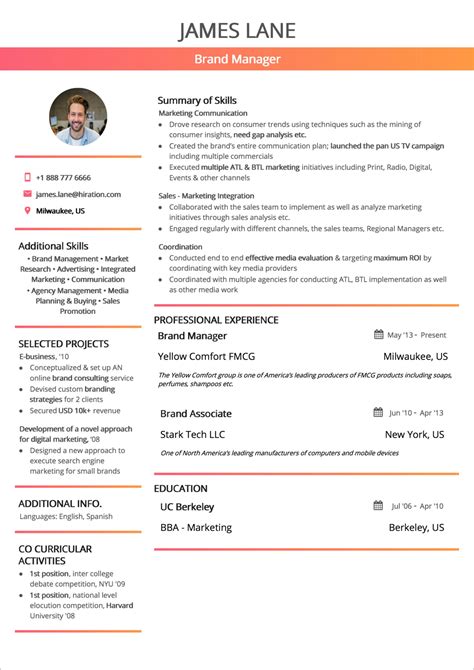Demystifying Functional Resumes: A Comprehensive Guide

Are you struggling with writing a resume that highlights your skills and qualifications effectively? Do you want to stand out from other job applicants and impress potential employers? A functional resume might be the solution you’re looking for.
What is a Functional Resume?
A functional resume is a type of resume format that focuses on your skills and abilities, rather than your work history. It’s ideal for job seekers who have gaps in their employment history, are changing careers, or have limited work experience.
How is a Functional Resume Different from a Chronological Resume?
A chronological resume lists your work experience in reverse chronological order, starting with your most recent job. In contrast, a functional resume emphasizes your skills and achievements, and groups them by category, such as leadership, communication, or technical skills.
When Should You Use a Functional Resume?
You should consider using a functional resume in the following situations:
- You have gaps in your employment history.
- You’re changing careers and want to highlight relevant skills.
- You have limited work experience.
- You want to emphasize your skills and abilities, rather than your work history.
How to Write a Functional Resume
Here are the steps to follow when writing a functional resume:
1. Start with a Strong Heading
Your resume heading should include your name, contact information, and a professional title or summary statement that highlights your skills and qualifications.
2. Create Relevant Skill Categories
Identify the skills and abilities that are most relevant to the job you’re applying for, and group them into categories such as leadership, technical skills, communication, and problem-solving.
3. Provide Specific Examples
For each skill category, provide specific examples of how you’ve demonstrated those skills in previous jobs or experiences. Use bullet points to make your resume easy to read and scan.
4. Include Education and Certifications
If you have relevant education or certifications, include them in a separate section on your resume. Be sure to list the name of the institution, the degree or certification earned, and the date of completion.
5. Highlight Achievements
Include a section on your resume that highlights your achievements and accomplishments. This could include awards you’ve won, projects you’ve completed, or goals you’ve met or exceeded.
6. Tailor Your Resume to the Job
Customize your resume to the job you’re applying for by highlighting the skills and qualifications that are most relevant to the position. Use keywords from the job description to make your resume stand out to potential employers.
7. Proofread Carefully
Before submitting your resume, proofread it carefully to ensure there are no typos or grammatical errors. Ask a friend or family member to review it as well.
FAQs about Functional Resumes
Q: Can I use a functional resume if I have a lot of work experience?
A: Yes, you can still use a functional resume if you have a lot of work experience. However, you should include a brief work history section at the bottom of your resume that lists your previous jobs, employers, and dates of employment.
Q: Is a functional resume better than a chronological resume?
A: It depends on your individual circumstances. A functional resume is ideal for job seekers who have gaps in their employment history, are changing careers, or have limited work experience. However, a chronological resume may be more appropriate if you have a strong work history in the same field.
Q: How long should a functional resume be?
A: A functional resume should be one to two pages long, depending on your level of experience and the requirements of the job you’re applying for.
“A functional resume is a powerful tool for job seekers who want to highlight their skills and abilities, rather than their work history.”
By following these tips and guidelines, you can create a functional resume that effectively showcases your skills and qualifications to potential employers.
